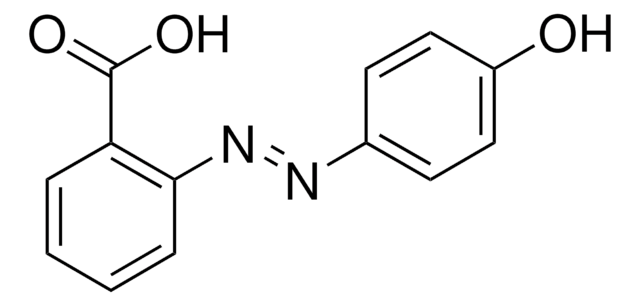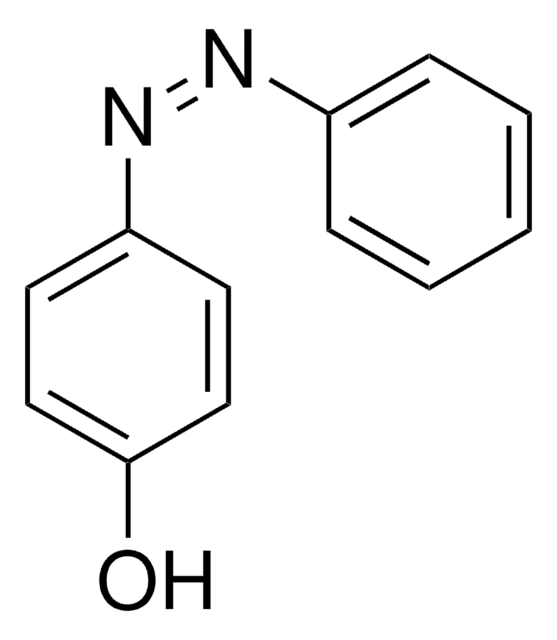771058
4-(4′-Hydroxyphenylazo)benzoic acid
97%
Synonym(s):
(E)-4-[(4-Hydroxyphenyl)azo]benzoic acid
About This Item
Recommended Products
Assay
97%
form
solid
reaction suitability
reagent type: cross-linking reagent
mp
270-280 °C
functional group
carboxylic acid
hydroxyl
storage temp.
2-8°C
SMILES string
OC(C1=CC=C(/N=N/C2=CC=C(O)C=C2)C=C1)=O
InChI
1S/C13H10N2O3/c16-12-7-5-11(6-8-12)15-14-10-3-1-9(2-4-10)13(17)18/h1-8,16H,(H,17,18)/b15-14+
InChI key
HLVCZTOFOWHIJZ-CCEZHUSRSA-N
Application
Has been used in proteomic and affinity chromatography applications.
Signal Word
Warning
Hazard Statements
Precautionary Statements
Hazard Classifications
Acute Tox. 4 Oral - Eye Irrit. 2
Storage Class Code
11 - Combustible Solids
WGK
WGK 3
Flash Point(F)
Not applicable
Flash Point(C)
Not applicable
Certificates of Analysis (COA)
Search for Certificates of Analysis (COA) by entering the products Lot/Batch Number. Lot and Batch Numbers can be found on a product’s label following the words ‘Lot’ or ‘Batch’.
Already Own This Product?
Find documentation for the products that you have recently purchased in the Document Library.
Customers Also Viewed
Our team of scientists has experience in all areas of research including Life Science, Material Science, Chemical Synthesis, Chromatography, Analytical and many others.
Contact Technical Service






![4-[4-(Dimethylamino)phenylazo]benzoic acid N-succinimidyl ester ≥98.0% (HPLC)](/deepweb/assets/sigmaaldrich/product/structures/120/235/500b5276-3ce2-43b7-9588-3883f13d4ff7/640/500b5276-3ce2-43b7-9588-3883f13d4ff7.png)




